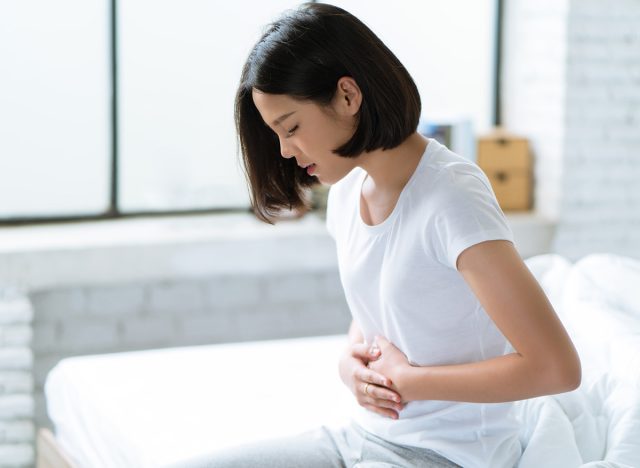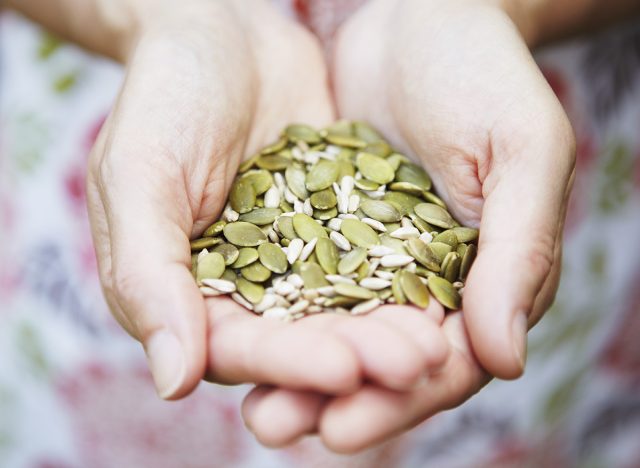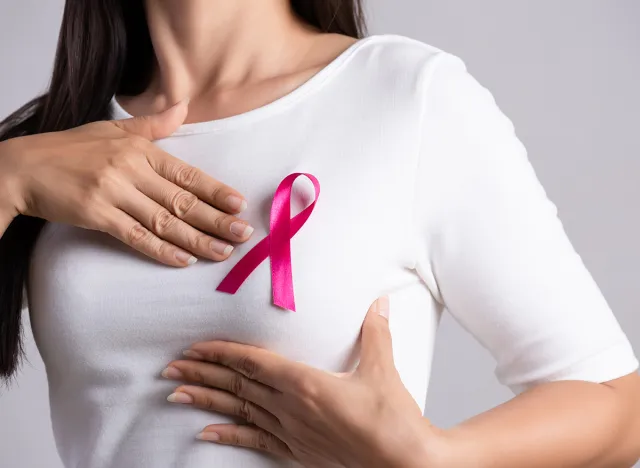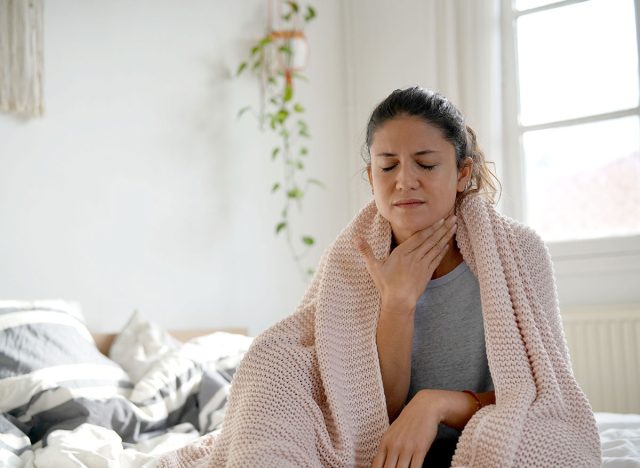When people think of pumpkins, most people think of those orange gourds that are fun for picking and carving during the autumn season. Pumpkins are also great for making delicious and flavorful recipes. However, did you know that the pumpkin can also be used for its seeds?
You've heard of eating sunflower seeds, chia seeds, and other various types, but it may be time to add pumpkin seeds to your list if you haven't already. The dietitians on our Medical Expert Board gave us insight into what would happen if you added them to your diet. Read on to see what the effects of pumpkin seeds are.
You may have an enhanced immune system.

According to Lauren Manaker, MS, RDN, LDN, CLEC, CPT, author of The First Time Mom's Pregnancy Cookbook, The 7 Ingredient Healthy Pregnancy Cookbook, and Fueling Male Fertility, pumpkin seeds contain zinc, a nutrient that supports immune health.
"Eating them consistently may help you take in enough of this key mineral and support your immune health," says Manaker.
You may experience stomach discomfort.

"Pumpkin seeds are high in fiber which can be a good thing, but practicing portion control is important," says Lisa Young, PhD, RDN, author of Finally Full, Finally Slim, and a nutritionist in private practice.
If you do consume too many pumpkin seeds at once, Dr. Young suggests that it may lead to gas and stomach discomfort.
You may sleep well.

When warm milk just won't cut it, try your luck on pumpkin seeds before bedtime.
"Pumpkin seeds are a natural source of tryptophan– an amino acid that supports sleep," says Manaker.
Therefore, she suggests eating them in the evening, which may help people get some restful shut-eye.
You may consume too many calories.

Dr. Young advises that although pumpkin seeds are high in vitamin E and unsaturated fat, too many of them can lead to packing too many calories into your daily diet.
On average, a quarter-cup of dried pumpkin seeds is about 180 calories. If you were to double the serving size, you'd be doubling up the calories, easily getting you to over 300 calories over one snack.
So, as nutritious as these seeds may be, Dr. Young advises that it's best to practice moderation.
You may have a reduced risk of breast cancer.

According to Manaker, pumpkin seeds contain lignans— polyphenols that may help reduce breast cancer risk.
In an observational study posted in the Nutrition and Cancer Journal, it was discovered that eating pumpkin seeds was associated with a reduced risk of breast cancer in postmenopausal women. Another study posted in the same journal suggested that the lignans in the food may also play an important role in treating this cancer.
You'll get lots of nutrients.

"Pumpkin seeds contain important minerals like iron and calcium," says Dr. Young.
According to the Mayo Clinic, the recommended daily intake of calcium is 1,000 to 1,200 milligrams for men and 1,200 for women if you're 51 and older. Meanwhile, the recommended daily intake for iron is 10-15 milligrams for adult males and females, and 30 milligrams for pregnant females.
Therefore, if you're looking for a quick way to get your nutrients, snack on some pumpkin seeds!
You may feel calm.

Need to feel zen? You can use teas and other herbal methods, but you may want to try something different.
According to Manaker, pumpkin seeds are a source of magnesium. She suggests that magnesium is a mineral that may help promote a feeling of calmness in the brain.
They may aggravate your esophagus.

If you've ever eaten a pumpkin seed, you know they have a crunchy texture and can have a hardened exterior. They make for a great additional crunch to a dish like salads (instead of croutons) or thrown on top of your pumpkin bisque.
However, their hardness, if not chewed carefully, can lead to some throat damage.
"Be sure to chew pumpkin seeds well," says Dr. Young. "Pumpkin seeds that are not chewed well may aggravate your esophagus when you swallow."
No comments:
Post a Comment